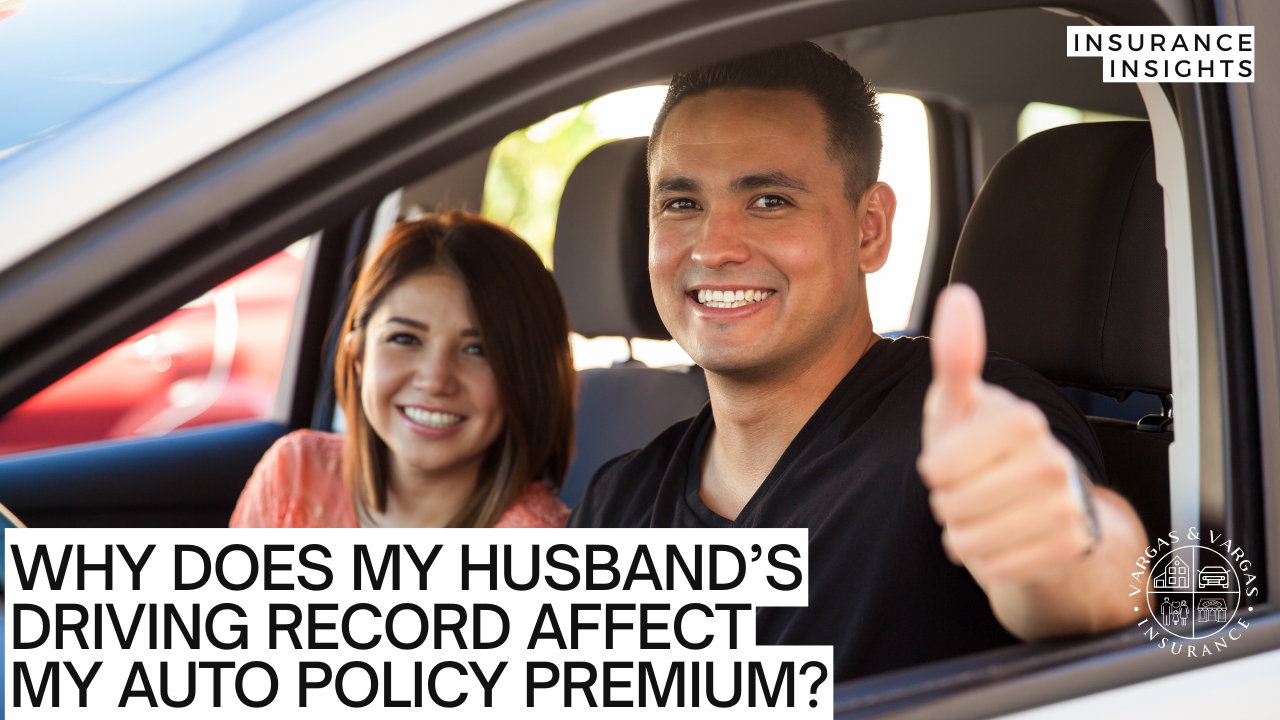Why Does My Husband’s Driving Record Affect My Auto Policy Premium?

Shouldn’t your rate be based only on your own driving habits?
These are questions we hear often from couples reviewing their auto policy. The answer lies in how insurance companies assess risk — and it might surprise you.
In this article, we’ll explain why your spouse’s driving record can impact your premium, how insurers calculate household risk, and what steps you can take if their record is driving up your costs.
Let’s break it down.
Insurance Companies Rate by Household — Not Just Individual Drivers
Even if you’re the primary driver and the policy is in your name, insurers look at the driving history of everyone in your household. Why? Because insurance companies assess the overall risk of your policy — not just the individual behind the wheel. If someone in your home has access to the vehicles listed on your policy, the insurer assumes there’s a chance they may drive them at some point.
That means your spouse’s speeding tickets, accidents, or past claims become part of the risk profile for your policy — even if they don’t drive your car regularly. This practice is common and confirmed by leading consumer advocacy groups like the Insurance Information Institute (III), which notes that insurers base rates on all licensed drivers in the household, not just the primary policyholder.
Married Couples Often Share Coverage
If both you and your spouse are licensed drivers living at the same address, you’re likely to be rated on the same policy — unless one is explicitly excluded. Here’s how this usually plays out:
- If you each have your own car but share a policy, both of your driving records are factored into the premium.
- If only one vehicle is insured but both spouses are listed as drivers, both records count.
- Even if your spouse rarely drives, insurance companies may still rate based on their history unless they’re formally excluded from the policy (which comes with its own risks).
Bottom line: If your spouse has a history of traffic violations or claims, it can raise the total premium for your household.
It’s All About Risk — and Risk Affects Premiums
Insurance is about predicting risk — how likely it is that someone will file a claim. The more risk an insurer sees, the more they charge to offset potential payouts. Here are some common red flags that can increase your premium:
- Multiple speeding tickets
- At-fault accidents
- DUI or reckless driving
- Lapses in coverage or license suspensions
If your spouse’s driving record includes any of these, insurers may see your household as a higher-risk account — which means you’ll pay more, even if your own record is clean.
Can You Avoid Being Affected by Their Record?
Sometimes. You have a few options, depending on your situation:
- Driver Exclusion:
Some states and carriers allow you to exclude a household member from your policy. That means they cannot drive the insured vehicles — ever. In return, their driving record won’t impact your rate. But beware: if they do drive and get into an accident, your claim could be denied. - Separate Policies:
You could each carry your own insurance policy, but this often isn’t cost-effective. Most insurers offer better rates for multi-car or multi-driver policies, even when one driver has a less-than-perfect record. - Shop Around:
Some insurers are more forgiving than others. A good independent insurance agent can help you compare carriers and find one that offers a more competitive rate for households with mixed driving records.
What You Can Do Next
If your spouse’s driving record is affecting your premium, talk to your insurance agent. They can help you:
- Understand how much impact it’s having
- Explore whether exclusion is an option
- Requote your policy with other carriers
- Look for discounts to offset the cost
Sometimes, just waiting it out is the best move. Most violations only stay on a driving record for 3 to 5 years, and your premium could go down once those issues fall off.
In Summary: You're Rated Together, Even if You Drive Separately
It may feel unfair that your clean driving record is overshadowed by your spouse’s history, but from the insurer’s point of view, it’s about protecting against who might drive — not just who usually drives.
Insurance companies rate by household risk — not individual perfection.
Understanding how this works can help you make smarter choices and potentially lower your rate.
If you have questions about your policy or want to explore other options, we’re here to help. At Vargas & Vargas Insurance, we work with multiple carriers and tailor coverage for your unique situation — no matter who’s behind the wheel.


